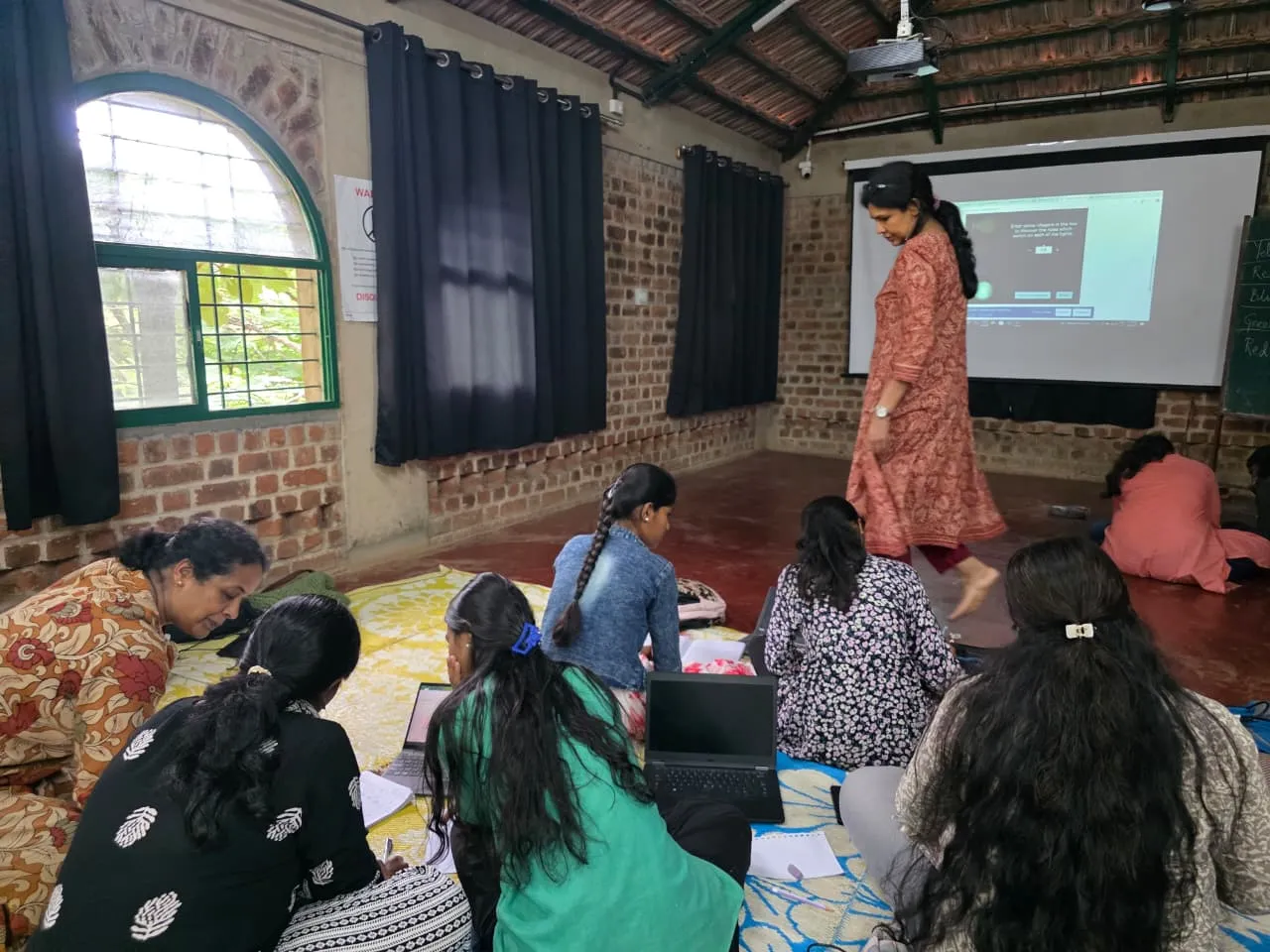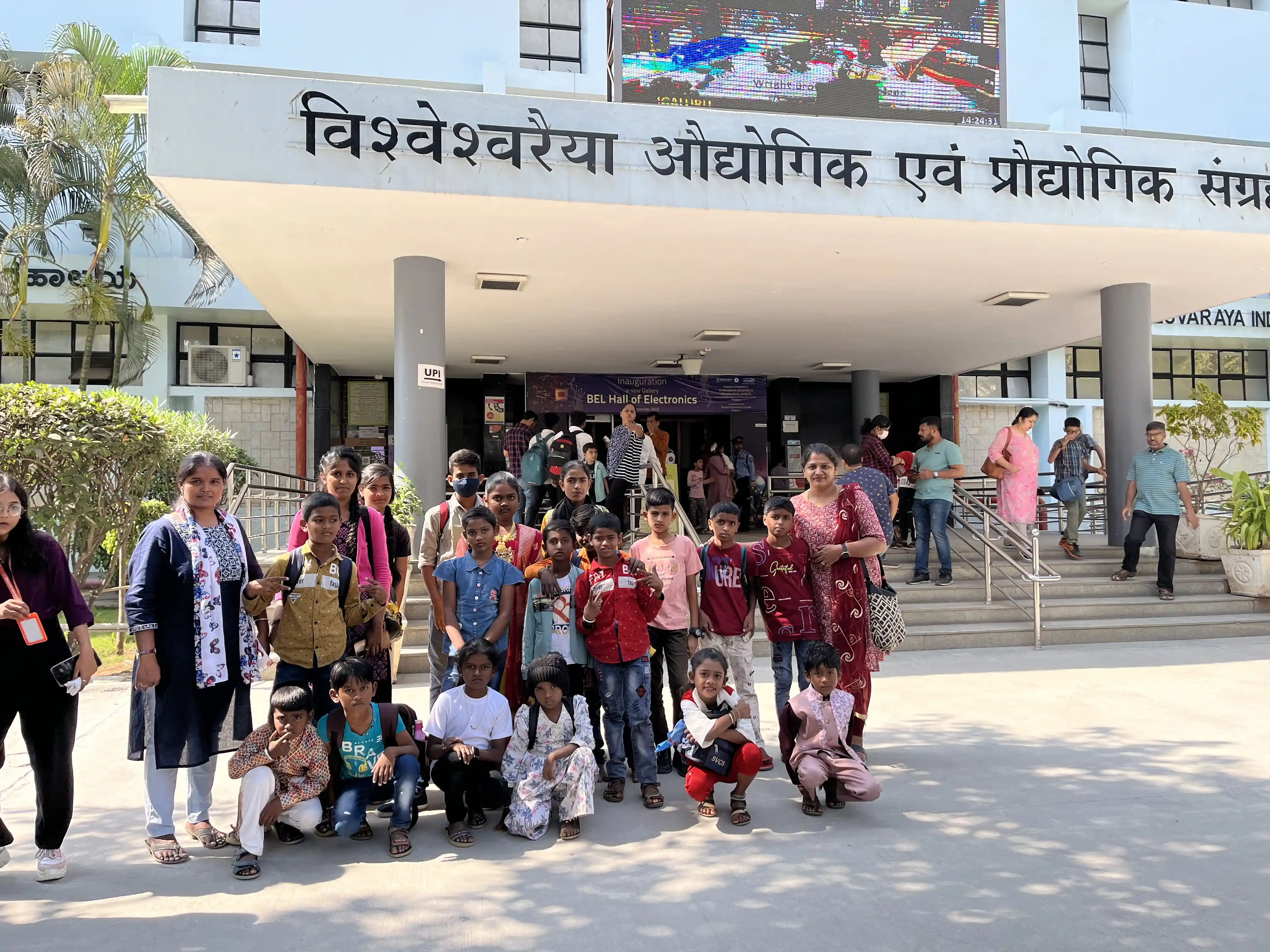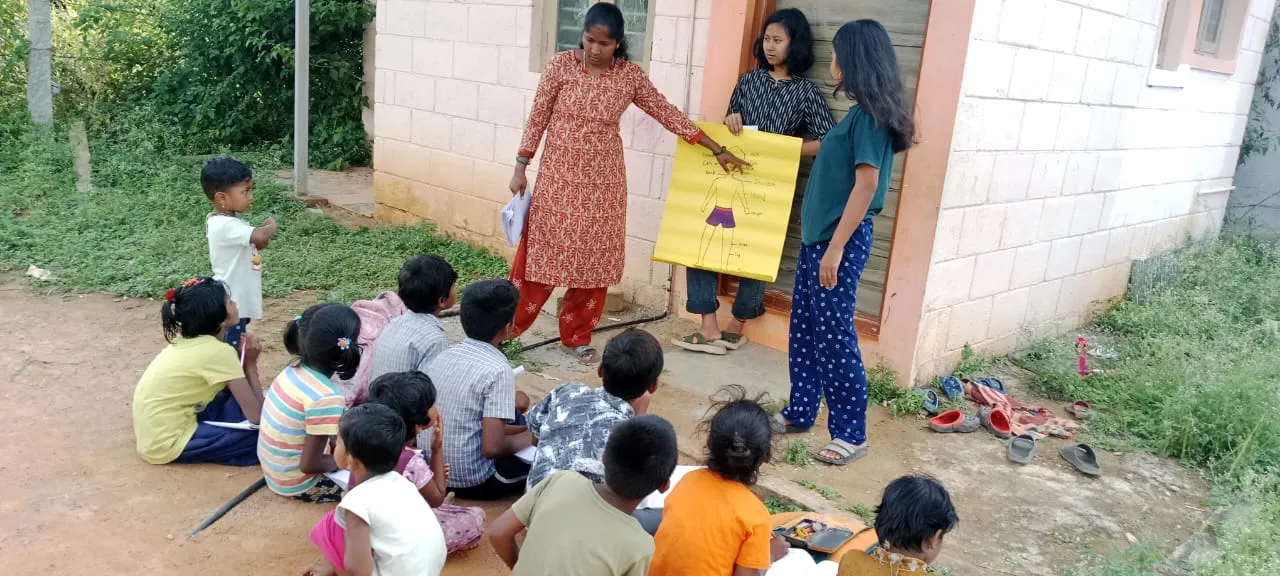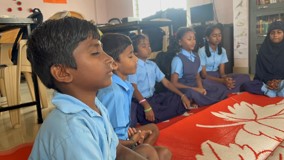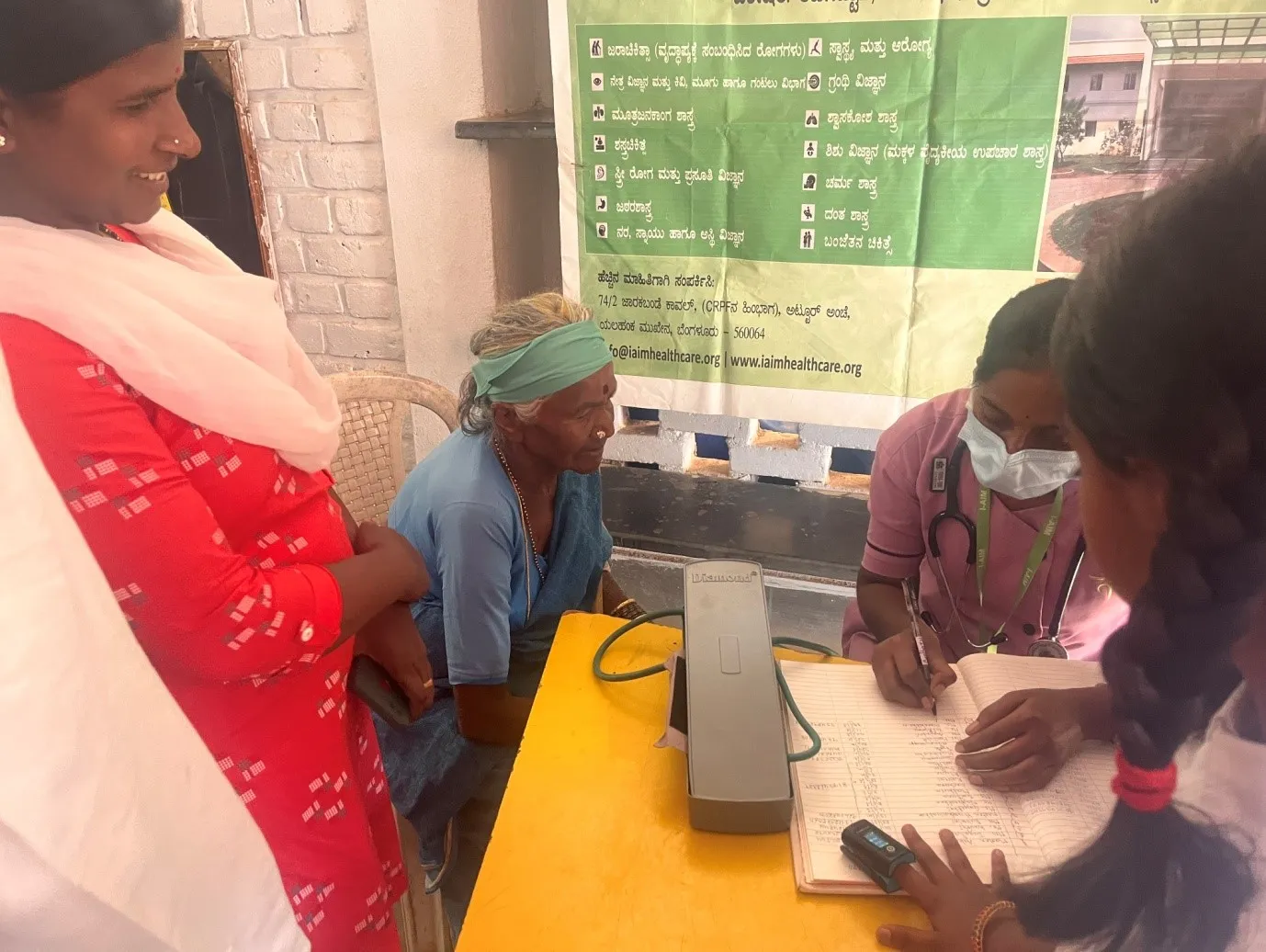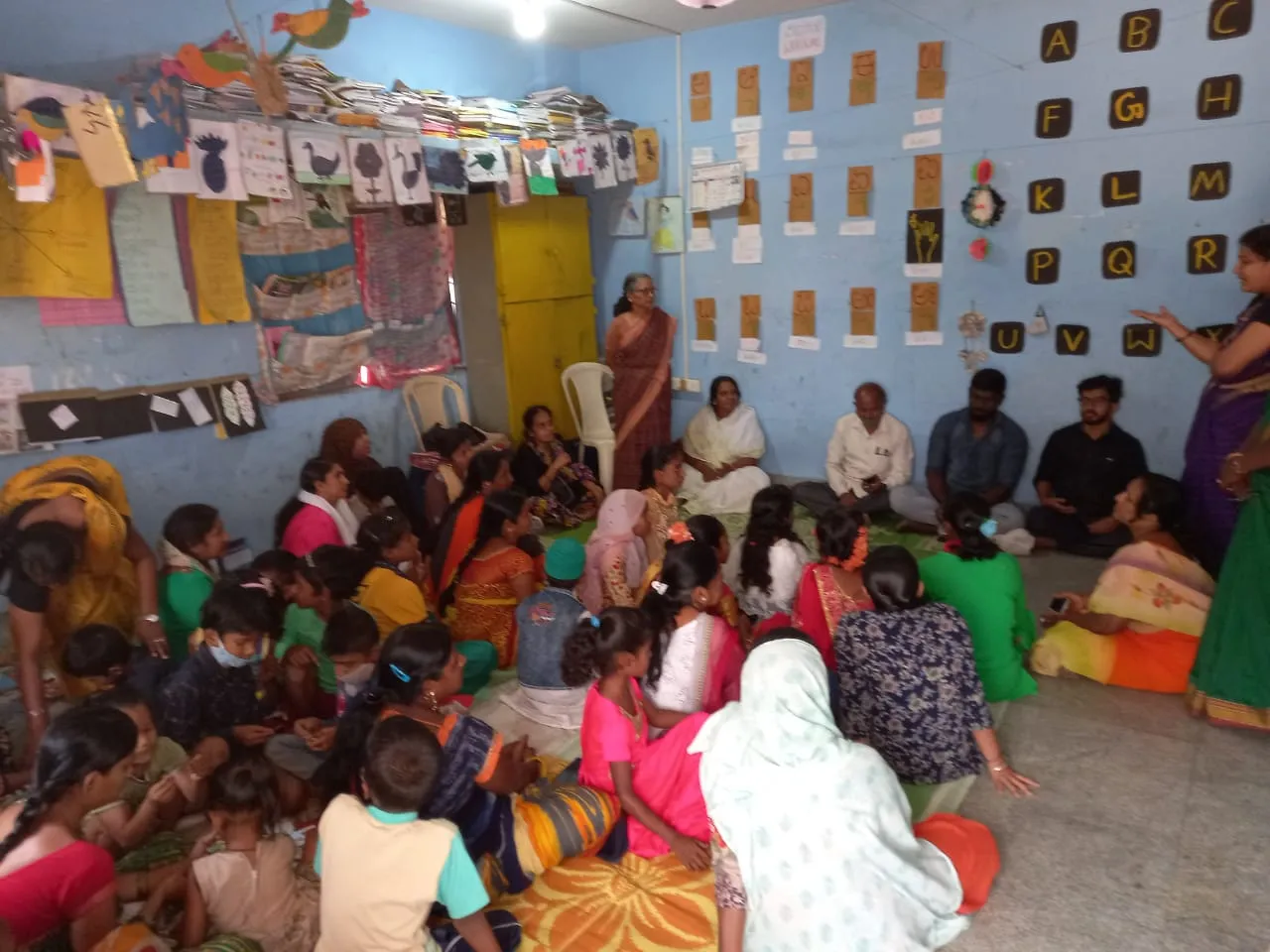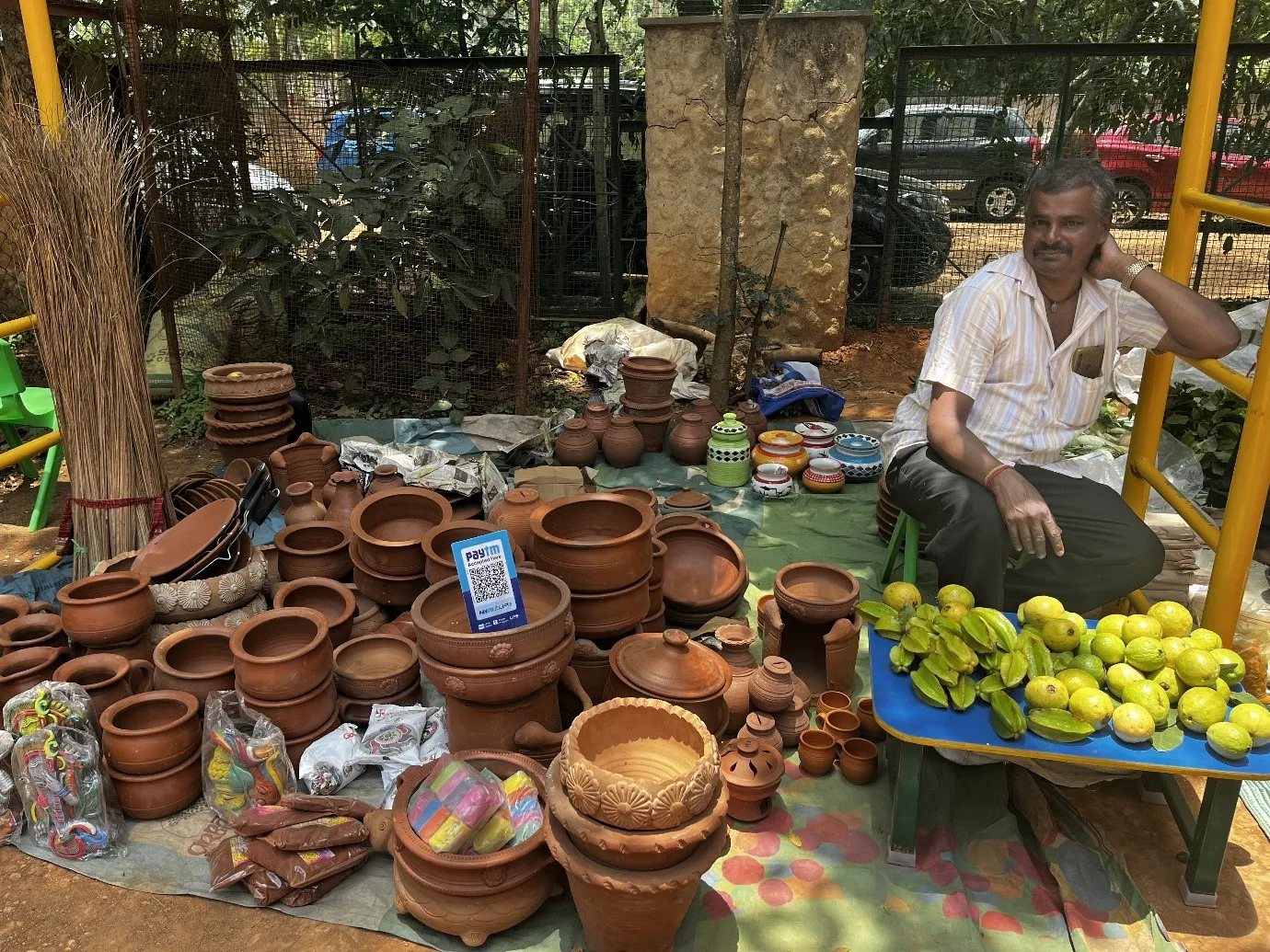Our teachers follow the “head, heart, and hands” approach—something rare in today’s world, especially in the communities we work with. Many children are guided into rote learning and lose touch with their natural curiosity. We believe each child is unique, but modern schooling often pushes them into memorization, which weakens comprehension and limits creativity.
Over the last three years, while working with 150+ children, we’ve noticed that children from these communities are often skilled in hand work, aware of their surroundings, and independent in daily chores. Yet, they feel intimidated by academics, and many drop out after Grade 8. Their biggest struggles are in comprehension, especially in English.
To address this, we train our facilitators to take a holistic, activity-based approach. They plan lessons weekly, share ideas in group discussions, and tailor learning to the child’s level. They are given refresher courses in foundational math, spoken English sessions, access to books, digital tools, and self-learning resources. Teachers also attend workshops—from making papier-mâché baskets to simple soil experiments—and spend time observing classes at Poorna Learning Centre(www.poorna.in) to learn from alternative practices.
Our teachers are not just instructors; they are friends and mentors. They track each child’s progress, involve parents and grandparents, and keep learning alive both inside and outside the centres. They are the backbone of Bija—bringing energy, cheer, and a strong sense of community.
